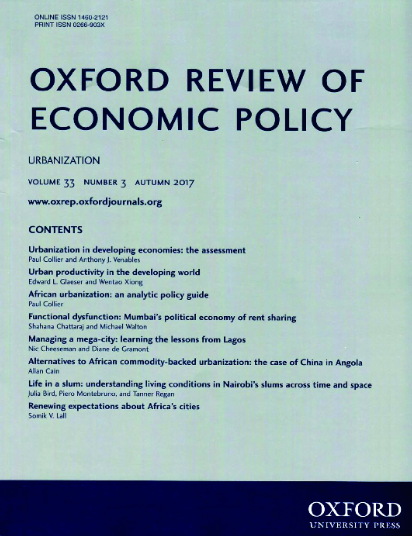How may solar geoengineering impact global prospects for climate change mitigation?
IF 2.1
2区 经济学
Q2 ECONOMICS
引用次数: 1
Abstract
As disruptions from climate change increase, so will the urgency to find shorter-term approaches to ameliorating its harms. This may include calls to implement solar geoengineering, an approach to cooling the planet by reflecting incoming sunlight back to space. While the exact effects of solar geoengineering are still highly uncertain, physical science to date suggests that it may be effective at reducing many aspects of climate change in the short term. One of the biggest concerns about solar geoengineering is the extent to which it may interfere with crucial emissions reductions policies, i.e. mitigation. There are multiple channels by which geoengineering could alter mitigation pathways, both financial and behavioural. Here we define three such linkages and present the evidence available to constrain their potential magnitudes. Because solar geoengineering is not a substitute for mitigation, policies to develop or implement technologies that could be used to carry it out should be designed to accentuate its complementary nature to mitigation and deter the possibility it is used to delay decarbonizing the economy.太阳能地球工程如何影响减缓气候变化的全球前景?
随着气候变化带来的破坏加剧,寻找短期方法减轻其危害的紧迫性也在增加。这可能包括呼吁实施太阳能地球工程,这是一种通过将入射的阳光反射回太空来冷却地球的方法。虽然太阳能地球工程的确切效果仍然高度不确定,但迄今为止的物理科学表明,它可能在短期内有效地减少气候变化的许多方面。关于太阳能地球工程的最大关切之一是它可能在多大程度上干扰关键的减排政策,即减缓。地球工程可以通过多种途径改变减缓途径,包括财政和行为。在这里,我们定义了三个这样的联系,并提出了现有的证据来限制它们的潜在幅度。由于太阳能地球工程不能替代缓解措施,因此制定或实施可用于实施该措施的技术的政策应强调其与缓解措施的互补性,并防止其被用来拖延经济脱碳的可能性。
本文章由计算机程序翻译,如有差异,请以英文原文为准。
求助全文
约1分钟内获得全文
求助全文
来源期刊

Oxford Review of Economic Policy
ECONOMICS-
CiteScore
12.50
自引率
1.50%
发文量
41
期刊介绍:
The Oxford Review of Economic Policy is a refereed journal which is published quarterly. Each issue concentrates on a current theme in economic policy, with a balance between macro- and microeconomics, and comprises an assessment and a number of articles. It gives a valuable appraisal of economic policies worldwide. While the analysis is challenging and at the forefront of current thinking, articles are presented in non-technical language to make them readily accessible to all readers. The Oxford Review is aimed at a wide audience including government, business and policy-makers, as well as academics and students. It is required reading for those who need to know where research is leading.
 求助内容:
求助内容: 应助结果提醒方式:
应助结果提醒方式:


